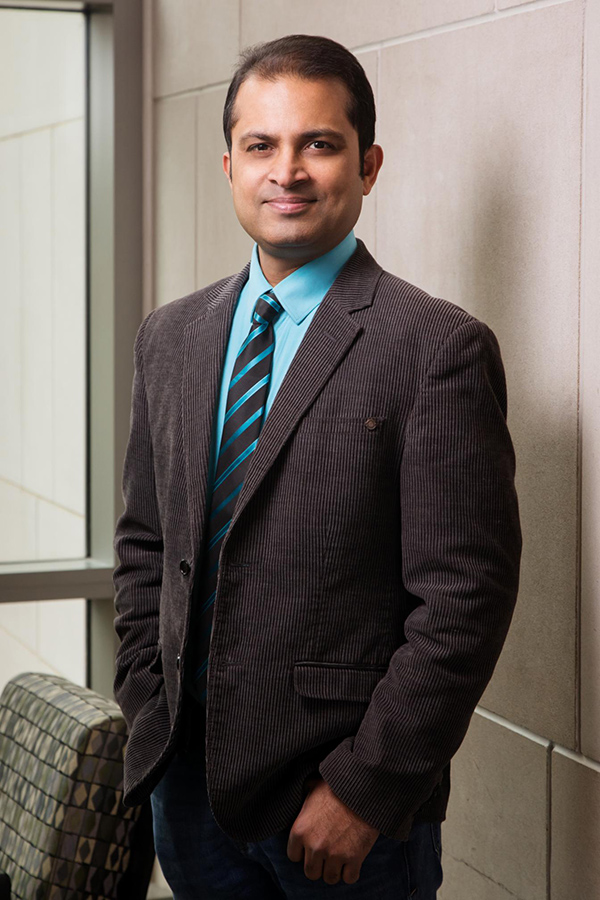Bioinformatician Saurabh Sinha is the newest professor in the Wallace H. Coulter Department of Biomedical Engineering at Georgia Tech and Emory University. Sinha joined the faculty Aug. 1.
Sinha works to develop new techniques to analyze genomics data and study animal development and human disease. His team draws on concepts in computer science, machine learning, statistics, and physics.
“Molecular biology is rapidly transforming to a quantitative field where large and new types of data present unprecedented opportunities to learn about biological phenomena and human health, but only if the appropriate analysis methods are used,” said Sinha, who also will be the Wallace H. Coulter Distinguished Chair in Biomedical Engineering at Georgia Tech. “This is what excites me about my research, as I feel we can make a big difference in an important field.”
The lab’s recent work has focused on understanding how DNA controls the activities of genes and the resulting differences in biological properties, such as predisposition to diseases and response to treatments. Sinha’s team has published new approaches to predicting the consequences of DNA mutations and using those predictions to explain why some people are resistant to cancer drugs, for example.
Sinha comes to the Coulter Department and Atlanta from the University of Illinois at Urbana-Champaign, where he was Founder Professor in Computer Science. At Georgia Tech, he will also be appointed in the H. Milton Stewart School of Industrial and Systems Engineering.
Sinha earned his Ph.D. in computer science and engineering at the University of Washington and completed his postdoctoral training at Rockefeller University.
“I’m excited to join the biomedical engineering community at Georgia Tech and Emory, which produces world-class research and has proven really welcoming and friendly,” Sinha said.
Latest BME News
Jo honored for his impact on science and mentorship
The department rises to the top in biomedical engineering programs for undergraduate education.
Commercialization program in Coulter BME announces project teams who will receive support to get their research to market.
Courses in the Wallace H. Coulter Department of Biomedical Engineering are being reformatted to incorporate AI and machine learning so students are prepared for a data-driven biotech sector.
Influenced by her mother's journey in engineering, Sriya Surapaneni hopes to inspire other young women in the field.
Coulter BME Professor Earns Tenure, Eyes Future of Innovation in Health and Medicine
The grant will fund the development of cutting-edge technology that could detect colorectal cancer through a simple breath test
The surgical support device landed Coulter BME its 4th consecutive win for the College of Engineering competition.








